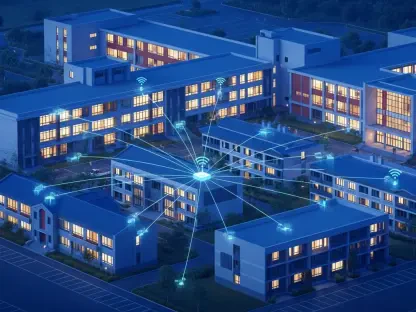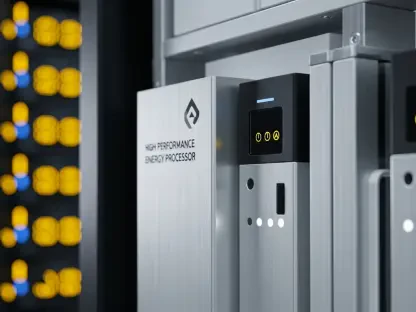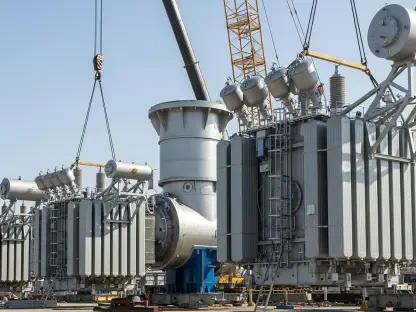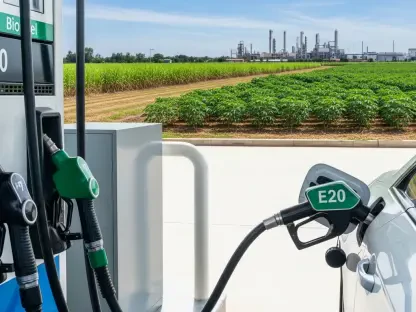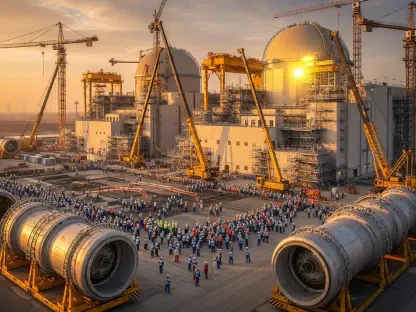In a world increasingly focused on sustainable solutions, the push for cleaner public transportation has never been more urgent, especially as urban centers grapple with air pollution and carbon emissions. Hydrogen-powered buses have emerged as a promising alternative to traditional diesel systems, offering zero-emission travel with comparable performance. At the forefront of this transformation is Ballard Power, a company that has dedicated itself to advancing fuel cell technology. With a strong presence in the European market, Ballard has already equipped over 850 vehicles with its innovative modules, partnering with major bus manufacturers to bring hydrogen solutions to city streets. Their latest development, the FCmove-SC fuel cell module, specifically designed for city buses, signals a significant leap forward. This advancement not only enhances technical capabilities but also tackles the critical challenge of cost competitiveness, positioning hydrogen buses as a viable option for modern transit systems.
Pioneering Fuel Cell Innovation for Urban Transit
Ballard Power’s introduction of the FCmove-SC module marks a pivotal moment in the evolution of hydrogen-powered public transportation. Tailored for the European market, this cutting-edge technology builds on the success of earlier models like the FCmove-HD and FCmove-HD+, delivering a peak power output of at least 75 kW. What sets this module apart is its impressive technical enhancements, including a 25% higher volumetric power density achieved through integrated DC/DC housing. Additionally, it boasts a 25% increase in maximum cooler outlet temperature, improving thermal management, and a 40% reduction in components, which simplifies integration into bus designs. These improvements ensure consistent performance and higher efficiency, addressing long-standing concerns about the practicality of fuel cell systems in demanding urban environments. With subsystems engineered for a service life of around 25,000 operating hours under standard conditions, the durability of this technology meets the rigorous needs of public transit operators.
Beyond the hardware, Ballard Power is redefining what it means to support sustainable transport through a holistic approach to innovation. The FCmove-SC module is not just about power; it’s about making hydrogen buses a practical choice for cities aiming to reduce their carbon footprint. By focusing on fewer components and enhanced thermal reserves, the company has created a system that is easier to maintain and more reliable over time. This is crucial for transit authorities who prioritize uptime and operational consistency. Collaborations with leading bus manufacturers like Solaris from Poland and Wrightbus from Northern Ireland have already resulted in significant deployments, such as hydrogen buses operating in regions like Rhein-Erft and Heinsberg in Germany. These real-world applications demonstrate the module’s ability to perform under diverse conditions, proving that hydrogen technology can seamlessly integrate into existing transit infrastructures while paving the way for broader adoption across Europe.
Closing the Cost Gap with Diesel Systems
One of the most pressing challenges in the adoption of hydrogen buses has been achieving cost parity with traditional diesel systems, a goal Ballard Power is actively pursuing through strategic advancements. Termed “diesel parity,” this mission focuses on narrowing the cost-of-ownership gap, making fuel cell technology not just environmentally superior but also economically competitive. The FCmove-SC module plays a central role in this effort by reducing lifecycle costs through its streamlined design and extended service life. Fewer components mean lower production and maintenance expenses, while improved efficiency translates to reduced energy costs over time. This approach addresses the financial hesitations of transit operators who must balance budgets with sustainability goals. By prioritizing measurable improvements, Ballard ensures that each iteration of its technology brings hydrogen buses closer to being a default choice for urban fleets.
Equally important to cost reduction is Ballard Power’s commitment to operational reliability through enhanced fleet services. Recognizing that downtime can be a significant barrier to adoption, the company has developed tools like the FCServiceCloud Customer Insight portal, which offers predictive maintenance and analytics. These services are designed to maximize uptime and minimize unexpected repair costs, providing transit operators with the confidence to transition to hydrogen-powered fleets. Insights from senior leadership, including the Chief Technology Officer and Chief Commercial Officer, highlight how customer feedback and operational experience shape these offerings. Their emphasis on simplifying integration and lowering operating expenses reflects a deep understanding of market needs. As these services expand, they create a support ecosystem that complements technological innovation, ensuring that hydrogen buses remain not only viable but also preferable in the long run.
Showcasing Solutions and Shaping the Future
Ballard Power’s influence extends beyond product development, as the company actively engages with industry stakeholders to demonstrate the potential of its technology. An upcoming showcase at Busworld in Brussels from October 4 to 9 provides a platform to highlight the FCmove-SC module alongside other transport solutions. This event serves as an opportunity to connect with manufacturers, operators, and policymakers, illustrating the real-world benefits of hydrogen buses in terms of performance and cost-effectiveness. Such engagements are vital for expanding market reach and building trust in fuel cell technology as a cornerstone of sustainable urban transit. By presenting tangible results and fostering dialogue, Ballard reinforces its position as a leader in the sector, driving momentum for wider acceptance of hydrogen solutions across diverse regions.
Looking back, Ballard Power’s efforts to revolutionize hydrogen bus technology were marked by a relentless focus on innovation and collaboration. The strides made with the FCmove-SC module, coupled with comprehensive fleet services, demonstrated a clear path toward diesel parity. For the future, transit operators and cities are encouraged to explore pilot programs and partnerships with technology providers like Ballard to test and scale hydrogen solutions. Policymakers can play a role by incentivizing adoption through funding and regulatory support, while manufacturers might prioritize integrating advanced fuel cell systems into next-generation designs. These actionable steps, built on the foundation of Ballard’s achievements, offer a roadmap for transforming public transportation into a cleaner, more sustainable network, ensuring that the benefits of hydrogen technology reach communities worldwide.


